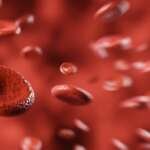The term “belly fat loss” is sold in a way that is unhealthy, unsustainable, and occasionally dangerous by the diet culture and the firms that market diets. People’s bodies and minds can suffer from the effects of these diets and goods.
Flat belly teas typically contain natural laxatives, which can be problematic for both the stomach and the lining of the gut.

It’s destructive and misleading. Diets designed to target belly fat might assist you in shedding some water weight or bloat, but these advantages are temporary and do not resolve the underlying issue.
Is it possible to get rid of abdominal fat while still providing adequate nutrients and care for the body at the same time? What role does diet play in the process of losing belly fat?
The different types of abdominal fat
There are variations in the dangers that different types of fat pose to one’s health. The fat that is found under our skin and outside of our abdominal wall is called subcutaneous fat. According to Harvard Health, ninety percent of the fat in our bodies is found under the skin.
Visceral fat makes up about 10% of total body fat and is the type of fat that medical professionals recommend keeping an eye on. The layer of fat that surrounds and protects our internal organs is called the visceral layer of fat. This fat has been linked to a variety of diseases, including heart disease.
It is impossible to “repair” visceral fat in a short amount of time. According to this study, losing this abdominal fat can be accomplished through a combination of a healthy diet and weight loss.
A balanced, nutrient-dense diet is your best bet

Contrary to popular belief, there is no magic bullet that can magically melt away fat in the abdominal region. Even while our culture encourages reducing belly fat by consuming the right meals and engaging in the appropriate amount of exercise, the focus should really be on weight management.
Researchers believe that keeping a healthy level of visceral fat can be achieved through a combination of consuming a balanced diet and engaging in frequent physical activity.
According to Harvard Health, eating complete grains, vegetables, lean meat, and legumes can help one lose weight. It’s possible that added sugars and processed carbohydrates contribute to weight gain and belly fat.
It’s not just about your diet, though
The diet is one of the most important aspects of weight loss. A study that was published in the journal BMC Public Health found that diet alone had a greater impact on visceral fat loss than diet combined with exercise.
Exercising regularly is essential for weight loss, just as it is for other parts of life. Exercise, dietary changes, stress management, avoiding tobacco use, and more sleep are the five strategies that Harvard recommends for reducing visceral fat.
The Mayo Clinic found that not getting enough sleep can lead to increased visceral fat. So, obtain appropriate sleep every night.








